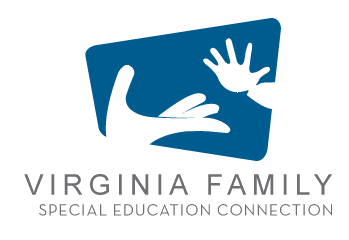Early Childhood
The term developmental delay means a delay in one or more of the following areas: physical development; cognitive development; communication; social or emotional; or adaptive development.
- Ages & Stages Questionnaires®, Third Edition™ (ASQ-3) (Free Confidential Online Developmental Screening)
- Early Childhood Resources (PEATC)
- Infant and Toddler Connection Virginia
- Learn the Signs. Act Early (CDC)
- Milestone Tracker Mobile App (CDC)
- Speech and Language Developmental Milestones (English and Spanish)
- VDOE Training and Technical Assistance Centers (Search by County/City)
- Virginia's Early Learning and Development Standards (ELDS), Birth-Five Learning Guidelines
Developing the appropriate social skills is an important part of the growth and development of any child. Observe your child at play. Does he/she interact with other children? Do they initiate conversations and turn taking with others? Are they able to follow one step instructions, such as "sit down"? Talk with your child's daycare provider to get their thoughts on your child's social development.
- Center on the Social and Emotional Foundations for Early Learning (CSEFEL)
- Department of Social Services (Search by County/City)
- Early Childhood Mental Health Virginia (ECMHVA)
- Early Childhood Resources (PEATC)
- Enhancing and Practicing Executive Function Skills with Children from Infancy to Adolescence (Activities Guide)
- PACER Center
- Social/Emotional Resource List
Additional resources are available by contacting your local school system. Many municipalities offer programs such as a state funded preschool initiative. Local agencies outside of your school system may also sponsor community programs for toddler and preschool age children.
Parents play an important role in the education of their children. You are your child’s best advocate. You are the only permanent member of the special education team. Parents have the right to be invited to and are encouraged to participate in any meeting having to do with the education of their child.
- Attend scheduled meetings about your child
- Ask questions and request help when you don’t understand or need help with something
- Your local Parent Resource Center and your child’s school are there to help (see Center for Family Involvement website).
- At a Glance: Your Rights in the IEP Process (Understood)
- Center for Family Involvement
- Critical Decision Points for Families of Children with Disabilities (VDOE)
- Early Childhood Resources (PEATC)
- IEP/IFSP Resource List
- IEPs (Understood)
- Parent Resource Centers (Search by County/City)
- Special Education Resources (PEATC)
- VDOE Training and Technical Assistance Centers (Search by County/City)
Determining if your child needs accommodations and/or related services and what those accommodations and/or services might be is an IEP team effort. Do some research to learn more about supplemental aids and services available for your child. Contact your local Parent Resource Center (Center for Family Involvement website) for information and resources that may help you determine what supports might help your child in the classroom. Bring your thoughts and resources to the IEP meeting. Don’t be afraid to ask questions.











